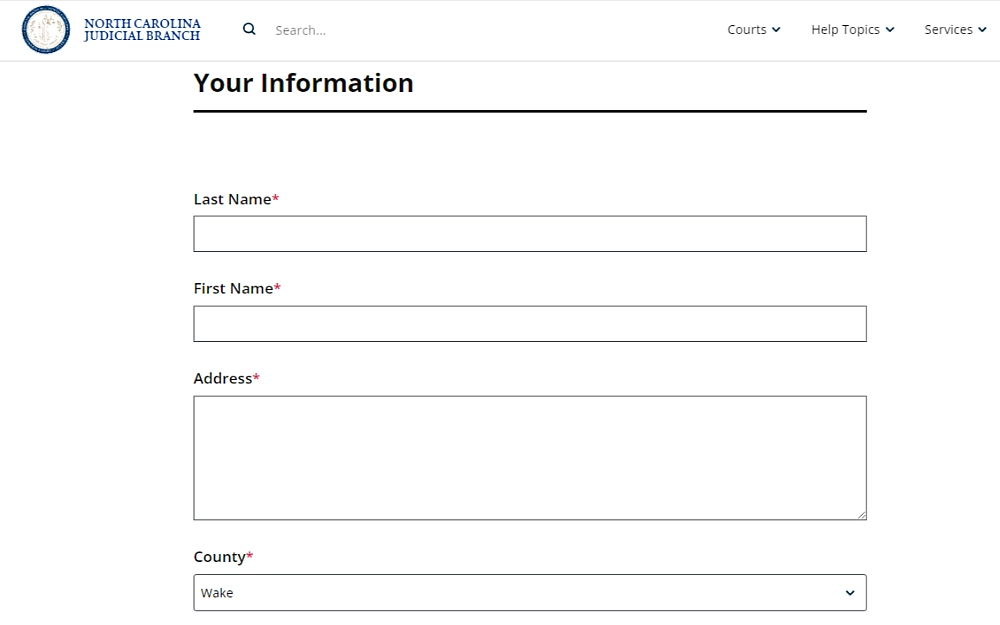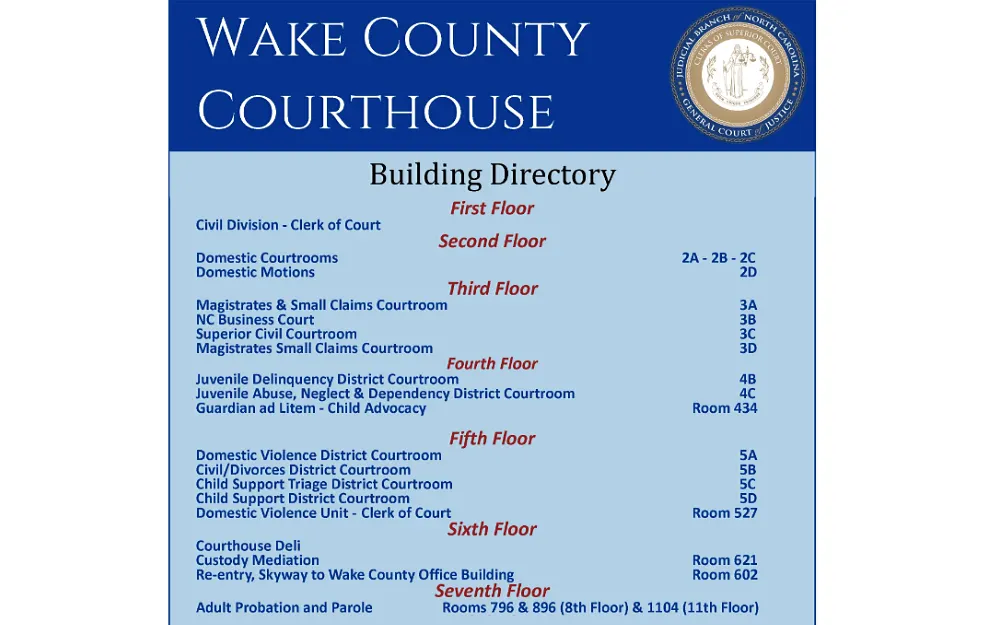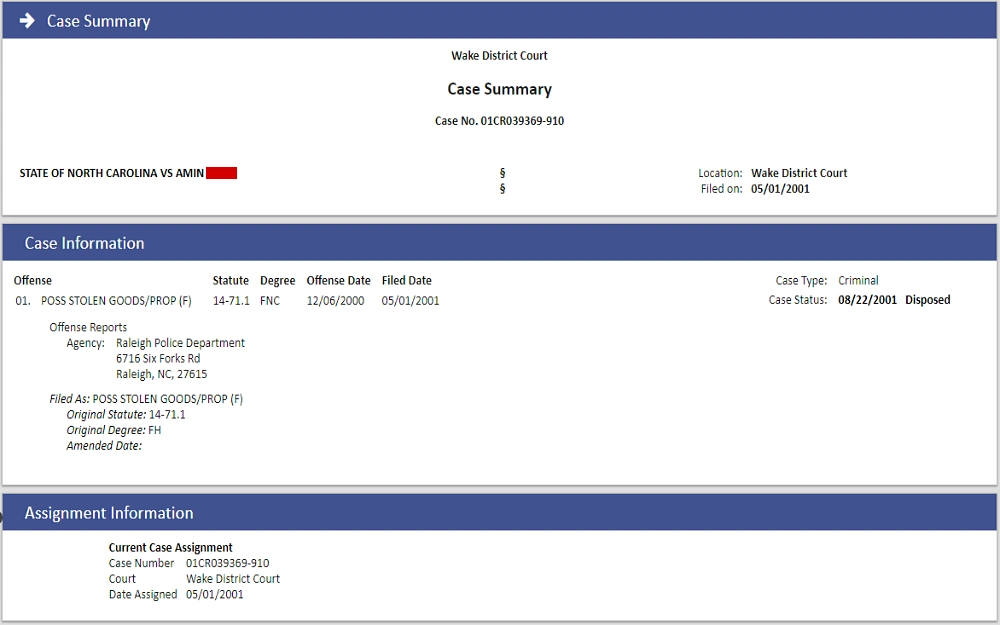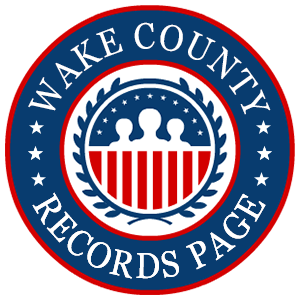Perform a Wake County warrant search for free to see who is wanted locally. Warrant information can let you know if law enforcement is actively seeking a person’s arrest or has taken them into custody in the past. Warrant details can be used for yourself, someone in your life, or to search out of curiosity.
Through the North Carolina Public Records Law, records of warrants are generally considered public records that any citizen can access.
It’s important to understand who the record custodian is and how they make the warrant information available. This resource covers everything you need to know to efficiently look up warrant information in Wake County, North Carolina.
This resource was written by Attorney Robert Bailey Jr, who holds a Juris Doctorate from Widener University School of Law.
Locating Free Information on Wake County Warrants (A Brief Overview)
Before you conduct your first search, start by better understanding what it takes to locate warrant information and what limitations there may be. You’ll also need to know the type of information you need to provide and the particular agencies that handle Wake County warrant information.
As previously mentioned, warrant information is generally required to be made available to the public through the North Carolina Public Records Law.1 However, there are certain exceptions for accessing warrant information. The most common exception for warrant information is if its release would hinder an investigation into criminal activity.
There are several types of warrants in Wake County. These various warrants will be discussed in greater detail later in this article.
What should be noted at this time is that certain warrants are more likely to be restricted than others. For instance, arrest warrants are typically available to the public, while search warrants tend to be restricted until their final execution.
It’s also important to know that the methods by which you access warrant information can change from one county to the next and even within the same county. Some record custodians provide online access, while others only allow for in-person searches. With certain government agencies, you can submit a request for warrant information by phone, email or mail.
When you decide to conduct a warrant search, you must make sure you are prepared with certain information. For the person you are searching for, you will want to have their full name and the county where they reside. You will also want to make sure that a Wake County government agency was responsible for issuing the warrant.
If you have a warrant or criminal case number, you may be able to access the information you are looking for quickly.
However, if you are having difficulty locating warrant information, you may be able to track down the record by providing additional information. This information may include a description of the offender or any information on why a warrant was issued.
The primary records custodian in Wake County is the Clerk of Court.2 However, warrant information is maintained online by the North Carolina Judicial Branch.
In some counties, the larger cities and towns will have their own municipal agencies that issue and maintain warrant information. In Wake County, there are no major cities that handle their own warrants.

In the next section, the nuts and bolts of searching for warrants in Wake County will be discussed.
Running a Wake County Warrant Search: A Guide to Finding Details of Anyone Wanted
Once you are ready to begin your search, you can access Wake County warrant information online through the North Carolina Judicial Branch’s eCourts Portal. This portal is a unified case search tool. To use this search tool for Wake County warrant information, you will first have to narrow the scope of your search.
The first step is to select “advanced filtering options” and select “Wake County” under the option to filter by location. Under the case type, select the “criminal and infraction” option.
To further filter your search results, you can include the person’s date of birth, gender or ethnicity. You can also set a filing date range for the criminal case associated with the warrant.
You can now enter the person’s name and view any matching results. The results page will contain the person’s name, criminal case number, status and court location. You can click on the criminal case number to view the complete online criminal record.
You may find warrant information in a couple of different locations on the criminal record. Both the “Case Events” and “Hearing” sections contain a chronological listing of all actions that have occurred in a particular criminal case. If a warrant was issued in the criminal case, it will be listed in these sections.
You then may want to take that information to contact the Wake County Clerk of Court for more detailed warrant information.
You can call the Clerk of Court at 919-792-4000 or go to the address below:
Wake County Courthouse
316 Fayetteville St.
Raleigh, North Carolina 27601
They are available Monday through Friday from 8:30 AM to 5:00 PM.

In certain towns and cities throughout the country, there are municipal courts and other local government agencies that issue and maintain their own warrants. The cities and towns in Wake County do not independently issue or maintain warrants.
How To Search for Warrants Issued Anywhere in North Carolina
After searching for warrant information in Wake County, you may want to expand your search throughout the entire state of North Carolina. While there is no statewide warrant search tool, you can access this type of information through the North Carolina Judicial Branch’s eCourts Portal.5

This tool can be used in the same manner as discussed in the previous section on searching for warrant information in Wake County. The only difference is that to search throughout all of North Carolina, you do not have to set a filter for location.
Note: This statewide tool does not include every county yet, but they are in the process of adding new counties until it covers the entire state.
Warrant Types & Their Definitions
Before you consider conducting a warrant search, you may not have realized there are multiple types in Wake County. Each type of warrant is issued for a certain reason and with a specific purpose in mind.
One of the most common and searched for is a warrant for arrest.6 This type of warrant is issued by a judge upon the presentation of enough evidence from law enforcement to establish probable cause that the person in question committed a crime in Wake County. Once issued, law enforcement has the authority to arrest this person without any further evidence.
An individual can be issued an arrest warrant for other reasons than because of the commission of a new crime. Depending on the severity, an arrest warrant may be issued for a probation or parole violation. A child support warrant may also be issued for a person’s arrest if they fall too far behind on payments.
A bench warrant also may be issued for the arrest of a person. A bench warrant is issued when a person fails to comply with any requirement or order from the court.
This may include missing a court hearing, failing to pay a fine or completing court-ordered community service. A bench warrant is issued directly by a judge and does not require evidence from law enforcement.
A search warrant is unique from the previous two types as its focus is on a particular item, not a person. When a search warrant is issued, law enforcement is entitled to search a particular location for evidence of a specific crime.
Search warrants have the same requirements as those for a person’s arrest. Before a search warrant is issued, law enforcement is tasked with providing the judge with probable cause that such evidence of a crime exists in a particular location.
A person may also be issued what’s commonly referred to as a Capias Pro Fine warrant if you received a guilty judgment against you and you failed to comply with a specific term of that judgment. This type of warrant can arise in both civil and criminal cases.
Note: Any of these warrants can be considered “active” as that means it’s outstanding or not fully executed yet.
Use the information provided in this section to help you better understand the information you find and guide you in your search process. The following discussion will cover what to do after conducting a warrant search.
How To Settle Any Active Warrants in Wake County NC
You have now conducted your first few warrant searches, and you found out that either you or someone you know has an active warrant for their arrest. Once you have this information in your possession, you may wonder what you should do with it.
First, consider what you should do if you find out that there is an active warrant out for your arrest. Whatever you do, do not ignore it.
If it’s for something like a traffic ticket or missed court date, you may be able to have the warrant quashed by proactively resolving the issue. This may mean paying a fine, pleading guilty to a violation or rescheduling a missed court date.
However, if the warrant is for a more serious matter, seek counsel from a licensed criminal law attorney in Wake County. They will be able to advise you on the process, what you should and should not do and your best course of action.
In addition to contacting an attorney, do not forget to let your family know. When you turn yourself in, there is no specific timetable on when you will be able to reach out to them, so make sure they are not worrying unnecessarily.
Lastly, you may have the option for bail after your processing. To make sure you can post as quickly as possible, reach out to a bail bondsman before you turn yourself in.
You may also find out that someone you know has an outstanding warrant. In this situation, if you have a good relationship with the person, you might want to consider letting them know. If they did not know they had a warrant, they now have an opportunity to resolve it before things get worse.
If you do not know the person well, or the warrant is for a serious criminal violation, you should probably not approach the person directly. One option is to let a mutual friend or family member know about the warrant. Another option is to inform law enforcement if the person is wanted for a serious crime.
You should now have a firm understanding of what you should and should not do with the information you find while performing a Wake County warrant search; refer back to this article whenever you have a question or plan to look up local warrants.
Delve deeper by searching Wake County arrest information and looking up local mugshots. To broaden your scope, conduct a statewide search of wanted individuals using the North Carolina warrant lookup tutorial.
References
1North Carolina General Assembly. (n.d). Chapter 132: Public Records. Retrieved January 11, 2024, from <https://www.ncleg.net/enactedlegislation/statutes/html/bychapter/chapter_132.html>
2North Carolina Judicial Branch. (n.d). Wake County Contact Directory. Retrieved January 11, 2024, from <https://www.nccourts.gov/locations/wake-county/contact-directory>
3North Carolina Judicial Branch. (n.d). Request for Jury Service Excuse or Deferral Form. Retrieved January 11, 2024, from <https://www.nccourts.gov/form/request-for-jury-service-excuse>
4North Carolina Judicial Branch. (n.d). Wake County Courthouse Building Directory. Retrieved January 11, 2024, from <https://www.nccourts.gov/assets/inline-images/wake-county-courthouse-directory.jpg>
5North Carolina Judicial Branch, Wake District Court. (n.d). eCourts Portal. Retrieved January 11, 2024, from <https://portal-nc.tylertech.cloud/Portal/Home/Dashboard/29#>
6North Carolina General Assembly. (n.d). § 15A-304. Warrant for arrest. Retrieved January 11, 2024, from <https://www.ncleg.net/enactedlegislation/statutes/html/bysection/chapter_15a/gs_15a-304.html>
